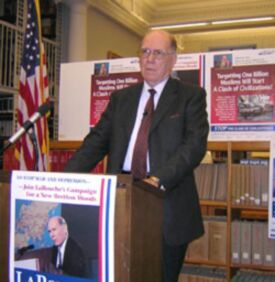No ears to this request
From The New CriterionIn the third Act of Antony and Cleopatra, Shakespeare tosses off an incidental scene by way of illustration both of how far Antony has fallen after his defeat at the battle of Actium and of how not to negotiate. Having lost not only the battle but most of his allies apart from Cleopatra, Antony has no one close to him to send to negotiate with Caesar but the man whom Plutarch calls “the schoolmaster to the children.” In Shakespeare he doesn’t even have a name, though Plutarch says he was called Euphronius. Obviously cowed on his own as well as on Antony’s behalf, this “Ambassador” begins his message from Antony to Caesar:
Lord of his fortunes he salutes thee, and
Requires to live in Egypt, which not granted,
He lessons his requests, and to thee sues
To let him breathe between the heavens and earth,
A private man in Athens. . .
I think the Second Folio’s reading of “lessens” for “lessons” is more persuasive, even though a Shakespearean schoolmaster might well have imagined Antony as “lessoning” or disciplining his own requests. On the stage, of course, the difference would not be audible anyway, and the idea of a man in a weak position intimidated into giving the weakness away and so making it still weaker is unforgettable. No wonder Caesar answers with typical brutality, “I have no ears to his request.”
I couldn’t help thinking of that poor schlub of an Ambassador when the Republicans in the House of Representatives demanded of Harry Reid and his Senate Democrats that they “defund” (as the jargon always puts it) the Affordable Care Act, also known as “Obamacare,” and then, that not granted, lessened their requests to a delay in its implementation for a year before lessening them still further to a delay of the individual mandate for the same period. Not that they got any credit from the uniformly hostile media for “flexibility” in their readiness to concede one demand after another. “Republicans are now simply flailing,” wrote the steely-eyed partisans of The New York Times’s editorial page. “Because they lack any plausible explanation for their irresponsible conduct in creating and prolonging the government shutdown, they are inventing new demands by the hour.” There was something rather comic, in a macabre sort of way, about how these “new demands” — really only progressively more watered down versions of their old demands — not only got them a similar answer to Caesar’s from the apparently unbudgeable Harry Reid, acting as the President’s hard man and enforcer, but even more criticism by the media purporting to be outraged by “the hard-line stance of Republican House members on the government shutdown.”
The Times editorialist then went on to treat the pitiable request of the Republican leader, Speaker of the House John Boehner, for “dialogue” as a further “demand” and one assumed as a matter of course not to have been made in good faith. “The real goal of these demands,” wrote this Democratic dialectician, “is not an agreement but instead the perception that it is Mr. Obama who is being intransigent, not the House.” Well, he ought to know. But it obviously helped that he was in the enviable position of being able to treat as self-evident the implied proposition that it was the House and not Mr. Obama who was being intransigent. In this, of course, he was as always on the same page as Senator Reid and his Democrats, who had answered the Republican concessions by saying, in effect, that they had no ears to their request, even as they continued to insist that it was the Republicans who were being intransigent.
True, occasionally, the mask would slip. At one point the Washington Post reported that the “scandal-scarred” Democratic Mayor of the District of Columbia, Vincent Gray, publicly complained about the effects of the shutdown on the capital city to Harry Reid, the man who, as he and everyone else in Washington knew, was keeping it going in order to increase the pressure on the Republicans to give up even their few remaining “demands.” Let’s let the Post take up the story from there.
“Sir, we are not a department of the government,” the mayor told Reid after concluding his news event and then crashing another about 50 yards away, where Reid and other Senate Democrats were talking to reporters. “We’re simply trying to be able to spend our own money.”
Reid (Nev.) responded defensively in front of a bank of cameras and reporters: ‘I’m on your side. Don’t screw it up, okay? Don’t screw it up.’”
Mayor Gray, apparently, hadn’t been considered an important enough figure in the Democratic party to have got the memo about making sure in all public pronouncements to keep up the fiction of bloody-minded and unyielding Republicanism. Not that such occasional lapses were anything much to worry about when the media were so unanimously on Senator Reid’s side without any need to be sent a memo. One or two journalists might have briefly absented themselves from Senator Reid’s lessoning but, if so, it was only a temporary truancy. Dana Bash of CNN, for example, asked the Senator about restoring funding in the midst of the shutdown for cancer research at the National Institutes of Health, something the Republicans had proposed but the Democrats rejected, as they rejected other moves to mitigate the effects of the Congress’s failure to pass a Continuing Resolution (which is what Senator Reid prefers now instead of budgets) at the beginning of the fiscal year. “But if you could help one child who had cancer,” asked Ms Bash, “why wouldn’t you do it?” The Senator replied: “Why would we want to do that?” and then went on to suggest that the question itself was irresponsible.
Progressive paladins from Media Matters and Politico dashed forward to explain that he hadn’t really said it and that Reid was only echoing his colleague, Chuck Schumer, who had interjected “Why pit one against another?” But even if you suppose that that somehow makes it better, it’s not what Reid said in later explaining his comment to The Hill.
“What I told Dana Bash, who is a fine reporter, is that we care about all of these things,” he continued. “We care about our state parks; we care about our veterans, but we can’t fall into the trap … of Cruz-led Republicans. That is this … we’ll cherry pick … and finally at the end, everything will be open except for ObamaCare.”
“Cherry pick” or “pick and choose” became the Democrats’ and therefore the media’s favored characterization of Republican attempts selectively to give way by restoring some particularly unpopular spending cuts while justifying their own refusal to do so. “Some in G.O.P. Try to Pick and Choose Amid Spending Fight” obediently headlined The New York Times, as if to say to the perfidious pickers and choosers, “At long last, have you left no sense of decency?”
In fact, picking and choosing may have represented the Republicans’ one slim chance of salvaging some electoral benefit from the confrontation by turning the Democrats’ trick of governing by Continuing Resolution against them — which is why the Democrats could become almost hysterical in their insistence that it was not, in their opponents’ hands anyway, a legitimate strategy. As it was, only about 17 per cent of the government was actually shut down by the shutdown, according to one calculation, and that involved a certain amount of public calculation as to which government personnel were “essential” and, therefore, couldn’t be furloughed, and which were not. There was clearly a danger there that people might begin to ask: if the furloughees weren’t essential, why were they employed in the first place? Maybe picking and choosing between the good and the bad, the worthy and the unworthy, the essential and the inessential might have something to be said for it after all.
But, as Harry Reid clearly recognized, allowing that game of musical chairs to go forward would be bound to end with poor, unpopular Obamacare standing alone and unprotected from predatory Republicans, bent on its elimination — which was why his own intransigence had to be portrayed as reasonable and necessary while that which he continued to allege against the Republicans was not even legitimate. “What right do they have to pick and choose what part of government’s going to be funded?” an exasperated Reid was quoted as saying at one point — apparently confident that none of his media auditors would be disposed to point out that the “right” in question was a Constitutional one in the case of a majority of the chamber entrusted by that document with the power of the purse.
One or two of the less dim among the media partisans might have sensed that there was something not quite right about the Democrats’ double standard. When a sympathetic Steve Inskeep of NPR asked President Obama what he could offer to the Republicans by way of breaking the logjam and reaching some kind of agreement, the great orator replied: “And, if, if we — Steve, when you say, ‘What can I offer?’ — I shouldn’t have to offer anything.” As with Harry Reid’s dismissal of kids with cancer, the right-wing ghetto media might have held up his comment in triumph as proof of the Democrats’ perfidy and bad faith in blaming Republican intransigence, but who cared? The majority whose news comes only from the major networks or newspapers, or by osmosis from them by way of late night comedians or fake news shows on Comedy Central, probably never heard about either comment, or were encouraged to think it a matter of any importance if they did.
By the way, the President’s remark that he “shouldn’t have to offer anything” was revealing in another way. The “shouldn’t” was a tip-off to the high utopian principles which lay behind the Democrats’ apparent immovability. Like Senator Reid’s pseudo-Marxist characterization of supporters of the Affordable Care Act when it came before Congress four years ago as being “on the right side of history” (see “It’s Only Common Sense” in The New Criterion of January, 2010), it betokened a self-certainty about being in the right which, taken together with a similar certainty among the morally principled but politically naive Republican advocates of confrontation, was ultimately what made the politics of shutdown so bitter and uncompromising. And, of course, it became even more so within a week of the shutdown when the battle over Obamacare became confused, as it was always bound to do, with the government’s latest requirement to increase its borrowing limit.
I share both the wider GOP’s belief in the terrible imprudence and unfairness of Obamacare and the belief of the party’s “extremists” in the immorality of a further increase in the already staggering amount of public debt incurred for current expenses without any agreement about reducing it, but I never understood what the House conservatives hoped to gain from fighting a two-front war with not just the Senate and the administration but the media adamantly against them on both fronts. Just war theory of the jus ad bellum variety stipulates that for a war to be just it must have a reasonable hope of success in addition to right authority and right intention. It was hard for me to see even an unreasonable hope when the advocates of war decided to embark on their ill-conceived strategy of confrontation just at the moment when the fiasco of the Obamacare roll-out might have been doing far more than they ever could to persuade people that it ought to be got rid of.
And they continued to get in their own way when Speaker Boehner was quoted by an anonymous colleague as having said that he would not allow the government to default on its debt-repayment — which, given the media and the Democrats treatment of default on existing loans as the inevitable consequence of not taking out new ones meant that he had deprived himself of the only leverage he had against the Democrats’ hitherto unbudgeable front. It was a blunder almost worthy Euphronius the Schoolmaster, and it made me wonder if there were not a kind of ironic truth to the other side’s contention that the Republicans had refused to negotiate, even though it was the former and not the latter who had announced their position to be non-negotiable. The GOP may not have refused to negotiate, but it sure didn’t seem to be negotiating seriously. This was entirely foreseeable, too, in view of Mr Boehner’s having been pushed by his more conservative members into a confrontation he would obviously have preferred to avoid.
The myth of the non-negotiating Republicans and the apparent willingness of people to believe it should have been enough in itself to remind the Republicans of what there was already too much reason for thinking, namely that the supposedly moribund media still have the power to enforce their narrative and that of the Democrats on the national conversation without respect to any intrinsic merits it might have. Didn’t this occur to them when they were being routinely described as (pick your adjective) extremist, reactionary, insane, criminal, moronic, suicidal, incompetent, terroristic, racist, Nazi-like or hate-filled? Didn’t they think of it when the shutdown was described as amounting to the return of Weimar Germany (John Judis) or an attempt by “angry” or “alienated” white males (Sam Tanenhaus) to bring back the 1950s or even the slave-owning Southern Confederacy (Courtland Milloy Jr.). That such rhetoric could be deployed by one side against the other without being laughed off the stage could only have happened in a media environment where opinion has become so polarized that all memory of a time when the arts of persuasion were valued above those of invective and satire appears to have vanished.
And yet. And yet. I found my sympathies with the beleaguered right only growing with every mistake and faux pas as the inconceivably mighty media embarked on their overdetermined campaign to portray in such hate-filled terms the Republicans’ brave but doomed attempt slightly to slow the accumulation of new debt with which to burden future generations. If these guys were so hated by the media, they must have been doing something right. Maybe the House Republicans had, after all, been right to do as they did. In other words, we of the residual right were at war with the loathsome left whether we chose to fight or not. And, if the giants and trolls win, let us die on the right side with Father Odin, as C.S. Lewis puts it somewhere. Once the country which Ronald Reagan used to like to call “the last, best hope of man on earth” has been definitively turned into Greece or Argentina, we will at least have the dubious satisfaction of being able to say “I told you so” — or we will if our new masters allow us until then to breathe between the heavens and earth as a private man in Athens.
Discover more from James Bowman
Subscribe to get the latest posts to your email.







